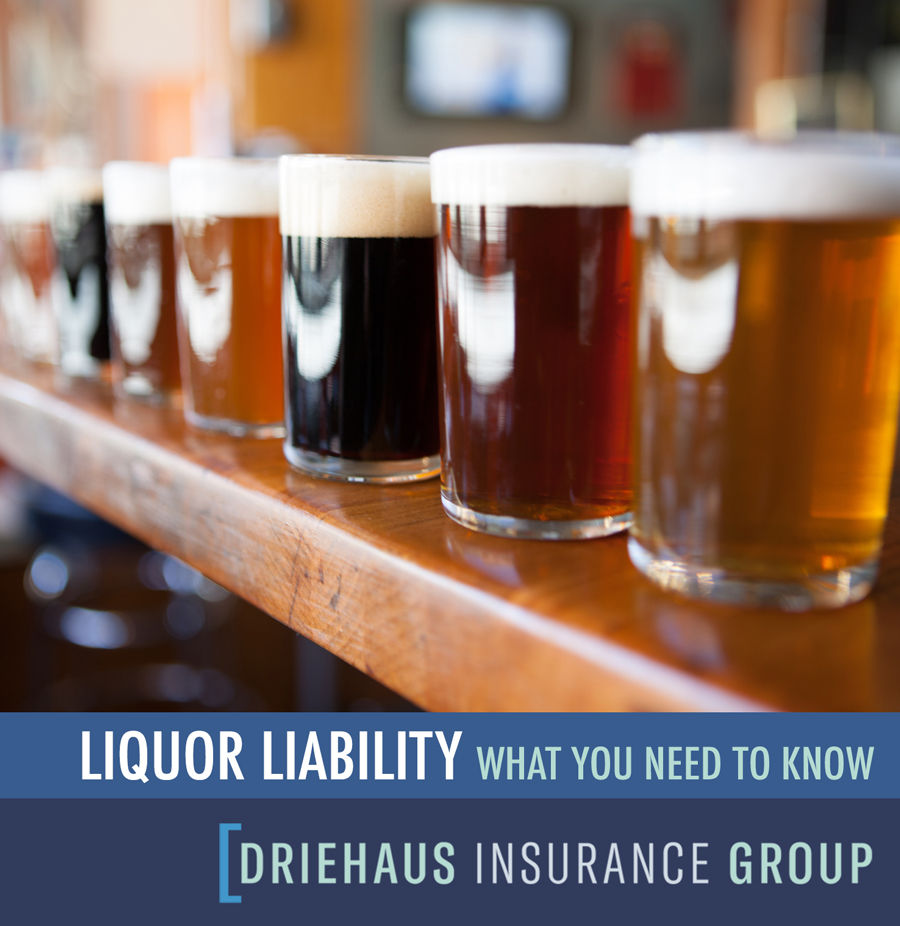Liquor Liability - What you need to know...
- cbeckman98
- Oct 12, 2021
- 4 min read

Americans consumed $6.07 billion in alcoholic beverages in May of 2021 (statista.com). This compares to $4.35 billion in May of 2019. The pandemic has not been an impediment to the alcoholic beverage world. More consumption can have the unintended consequence of more impaired consumers. Most insureds have some liquor liability exposure, and you need to recognize this and exercise the right controls to prevent the party from ending abruptly.
Personal Lines
If you serve alcoholic beverages at your home to guests, you may create a liability for yourself. Many states permit legal action against a social host in the event of an alcohol related accident. Some states may also have criminal liability for social hosts that served alcohol to someone who was involved in an accident. Serving underage guests can create additional legal exposures for the hosts.
Your homeowner’s insurance may cover this claim, but the limits of insurance you carry are the maximum your insurance carrier will provide. Review your policies and determine if your limit of insurance is adequate given your personal assets.
Commercial Insurance
Commercial insurance policies may have specific language excluding liquor liability for entities that are in the business of manufacturing, distributing, selling, serving, or furnishing alcoholic beverages. This exclusion removes coverage for liability related to:
(1) Causing or contributing to the intoxication of any person.
(2) The furnishing of alcoholic beverages to a person under the legal drinking age or under the influence of alcohol; or
(3) Any statute, ordinance or regulation relating to the sale, gift, distribution or use of alcoholic beverages.
This exclusion applies even if the claims against any insured allege negligence or other wrongdoing in:
(a) The supervision, hiring, employment, training or monitoring of others by that insured; or
(b) Providing or failing to provide transportation with respect to any person that may be under the influence of alcohol.
if the "occurrence" which caused the "bodily injury" or "property damage", involved that which is described in Paragraph (1), (2) or (3) above.
Commercial General Liability Coverage Form CG 00 01 04 Insurance Services Office, Inc.
The exclusion language clearly indicates that commercial insurers do not want to offer liquor liability insurance as part of their normal product package.
You can purchase liquor liability coverages and they can be endorsed by your commercial GL carrier or be a standalone product. In either case you need to assure yourself that the limits of liability provided are adequate for your business.
Commercial general liability does not exclude host liquor liability. Many states permit legal action against a social host in the event of an alcohol related accident. Some states may also have criminal liability for social hosts that served alcohol to someone who was involved in an accident. Serving underage guests can create additional legal exposures for the hosts.
Controlling the Exposure
In both commercial and personal situation, the controls over a liquor liability exposure are very similar. The common controls are related to being a responsible host.
Encourage guests to have a designated driver who will refrain from drinking so they can drive others home safely. Commercial venues should consider offering the designated driver free soft drinks for their service.
Observe your guests for signs of intoxication and limit their consumption. Do not pressure guests to drink or immediately refill their glasses. Allow the guests to moderate their intake. This process can include limiting the number of drinks served in a given time frame. Some states have laws regarding this for commercial establishments.
Offer non-alcoholic beverages and food as part of your event or menu. Eating and drinking water of other non-alcoholic beverages can help counter the effect of alcohol.
Have arrangements available for cabs or ride sharing for guests that are not safe to drive. Offering to pay the fare is a better alternative that defending a claim.
Stop serving liquor towards the end of the evening or event. Switch to coffee, tea, or soft drinks. Do not assume that coffee will sober up an impaired guest. The only solution to intoxication is time to absorb the alcohol.
For personal insureds consider an alternate location for your party. Hosting the party at a licensed venue can reduce your liability exposure. If you want to host the event at home, consider having a bartender provided by a caterer. Professional bartenders have training in recognizing and intervening with impaired guests.
For business serving alcohol, consult with your local licensing agency to determine if server training is a requirement for your jurisdiction. Some insurance companies may make this a requirement for liquor liability coverage.
The Driehaus Difference
We will help you protect your interests from liquor liability claims. From reviewing your policies and limits to suggesting alternate programs and policies that can provide the needed insurance. Our risk management team can help you review the training provided to your staff and help you find the resources that help you control these exposures. Call us at 513-977-6860 or contact us on the internet at www.driehausins.com




Comments